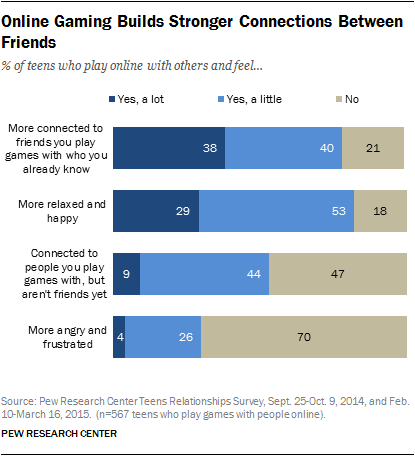Online video games have become one of the most common places for teens to meet their peers and create lifelong friendships. According to a recent Pew Research Center survey of teens ages 13-17, 72% of all teenagers spend free time playing video games on a computer, game console or portable device, with 36 percent reporting they have made new friends through online gaming.
This is supported by others studies that indicate that video games help people connect better with existing and new friends, especially through voice chat. They feel a real sense of kinship with their online teammates. For many gamers it’s also an ideal way to keep in touch with friends. Sometimes they don’t even play, but just chat in the lobbies of the games. There are also countless stories of people finding true love while playing online games.
Researchers have been observing this trend for decades, prompting the academic world to refer to the online game environment as a ‘third space’, outside of the home and workplace, where people from different backgrounds come together to reinforce a sense of community. In some cases, players use online games as a way to have fun with friends and family they also see in the real world, or with other players whom they would never have the chance to meet otherwise.








